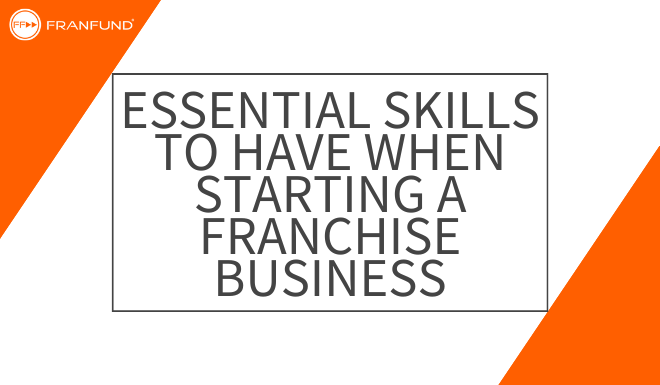Why Not Use Both?
Consider using multiple funding sources You’ve probably heard the buzzword “diversification” in relation to the stock market; the practice of...
3 min read
 FranFund
:
Jul 9, 2020 10:37:00 AM
FranFund
:
Jul 9, 2020 10:37:00 AM

At least one million businesses in the United States are owned by married couples, Many spouses have found that their relationships have been strengthened by both the highs and lows of co-owning a business. Are you and your significant other thinking about joining their numbers?
Before you and your partner take this important step, here are a few things to keep in mind.
Why? An established franchise offers several advantages over independent small businesses, including a proven business model and brand recognition.
A proven business model provides peace and security. You can rest assured you’re entering a thriving industry, and franchises offer support and training that you wouldn't otherwise have access to. In addition, brand recognition means customers are often more likely to choose your product over another.
There are other things to consider, such as:
The first question you should be asking is, “How will my spouse and I pay for our new franchise?"
Knowing your funding options allows you to strategically enter the purchasing and planning phase. It may even influence which brand partner you choose to work with.
There are a number of ways to secure financing for your new franchise. The two most common methods involve qualified retirement savings and Small Business Administration (SBA)-backed loans.
Many people believe the common misconception that retirement funds can only be used to purchase investments like publicly traded stocks, bonds or mutual funds. In reality, you can use your qualified retirement savings in what is referred to as “Rollover for Business Startups” (ROBS).
Loans backed by the SBA are partially guaranteed by the federal government, which makes them a more accessible alternative to many other financing options. A run-of-the-mill franchise loan (called a 7a) isn’t issued by the federal government directly, but instead by a qualified lender such as a bank.
Some franchises may use a combination of both ROBS and SBA-backed loans in their funding strategy. If you and your partner are eligible, this could be a great way to start your franchise.
Nontraditional funding options (which are more commonly used for expansion rather than new businesses) include:
Rollover programs like FranFund’s FranPlan let you use your qualified retirement savings tax-deferred and penalty-free to invest in your business.
This is a funding solution that doesn’t create any debt. Additionally, you and your partner aren’t borrowing against your retirement plan—you’re simply investing your retirement plan into your business instead of investing it in someone else’s.
The IRS does, however, have very strict guidelines in place for the execution and maintenance of the plan. The most reputable funding companies offer third-party administration services (TPAs) to help you meet these guidelines.
Using this method, your retirement funds are rolled over - tax-deferred and penalty-free - into a brand-new retirement plan that will serve you and your new company’s employees. This new model of retirement plan abides by the Internal Revenue Code (IRC) and the Employee Retirement Income Security Act (ERISA) and allows you to invest those funds in the stock of your own company.
The SBA works with lenders to offer business loans for startups, acquisition expansion, and working capital. They can potentially offer you and your partner a loan valued up to $5 million.
Most importantly, the SBA promises banks and other lenders that they will pay back a portion of the loan if the business happens to default. This means business owners who don’t qualify for conventional loans still might qualify for an SBA-backed loan thanks to the lower risk.
If you’ve already started to do research on your own, you’ve probably come across interactive funding and pre-approval tools that calculate the funding you qualify for based on input such as:
Our funding calculator can help you gauge which options you may qualify for, as well as rule out the possibilities you might not have access to.
It's advantageous to use a funding partner like FranFund. We have expertise and decades of experience in the franchise industry, we use a franchise-specific pre-qualification process to give clients a more reliable view of their ability to obtain loans, and we have strong relationships with lenders who are experienced in working with the franchise model.

Consider using multiple funding sources You’ve probably heard the buzzword “diversification” in relation to the stock market; the practice of...

When your kid said they wanted to be like Shaquille O'Neal or Drew Brees when they grew up, we can almost guarantee they didn't mean future franchise...

Starting a franchise business is an excellent opportunity for anyone looking to become an entrepreneur. Unlike starting a business from scratch, it...